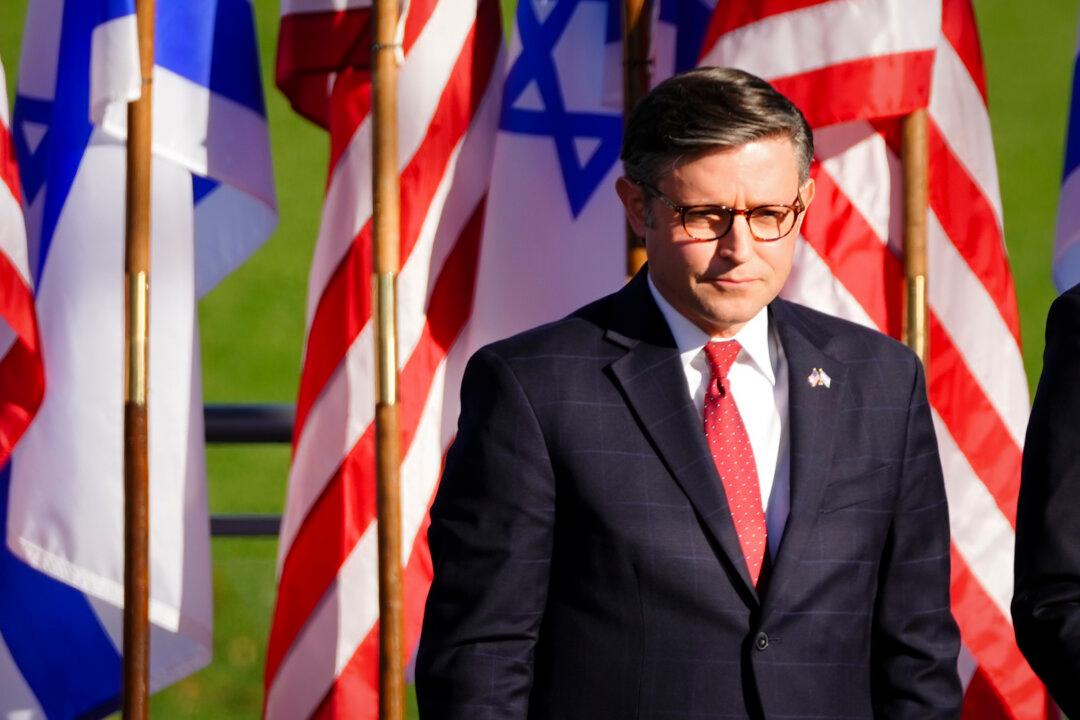House Speaker Mike Johnson (R-La.) has once again taken a vocal stand in defense of his Christian faith after a Democrat strategist said that what Mr. Johnson believes is a “bigger threat” to the United States than the Al-Qaeda terror group.
Democrat strategist James Carville made the comments during comedian Bill Maher’s show “Real Time With Bill Maher” on Dec. 1.





